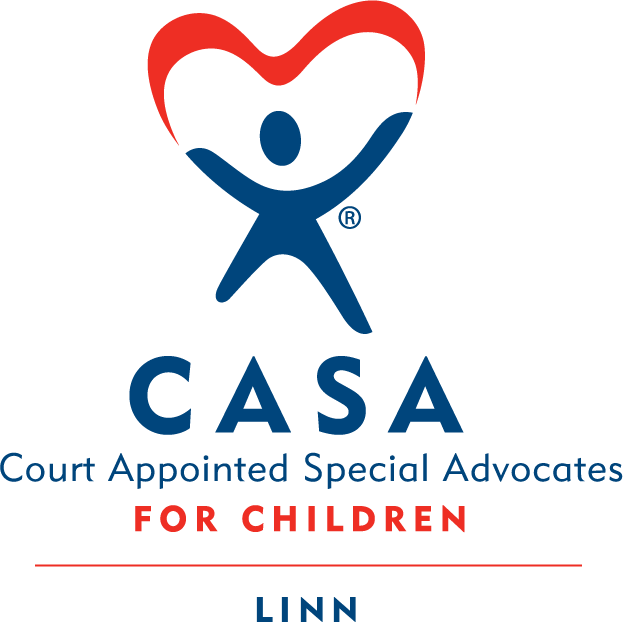Volunteer Information
To become a Court-Appointed Special Advocate
you must meet the following requirements:
- Willing to dedicate 40 hours to training, and commit to seeing their cases through to the final resolution – of a safe and permanent home for the children involved.
- You must be at least 21 years of age.
- Must be able to pass reference checks and an Oregon Department of Human Services and criminal background check before becoming a child advocate.
- You may not be a current foster parent or in the process of adopting a child from ODHS.
- Most importantly, CASA volunteers need to be passionately dedicated to helping children who have been abused or neglected.
Training is facilitated by CASA staff and happens in person at the CASA of Linn County Office in Albany.
Next round of training begins: April 19th, 2025.
Step 1: Information Session
Not required, but a great opportunity to learn more about the role.
The application will be downloaded.

Step 3: Interview
Once we have your application, we will schedule an intake interview to learn more about you and your interest in the role.

Step 4: Pre-Service Training
35 hours of classroom and 5-10 hours of court observation.

Step 5: Swearing In
Officially a CASA!

Step 6: Begin Advocacy!
If you are interested in joining a training class, please contact our Program Manager, Jenn Cabral-Ireland at 541-926-2651 or jennifer.cabral-ireland@linncasa.org as soon as possible if you’re interested!
Volunteer FAQ’s
Below are common questions people have when considering whether to become a CASA. If you don’t find your question answered here, please do not hesitate to contact us.
How much time is required to be a CASA?
There are 40 hours of Pre-Service training required to become a CASA. Once you are sworn in as a CASA and are assigned a case, you can expect to spend about 10 hours a month working the case. This includes visiting the child, meeting with caseworkers and attorneys, and attending court. At the beginning of a case, the amount of time spent on a case may increase, but tends to steady out as the case continues. We expect volunteers to stay on for the life of the case, typically about 2 years, until the child achieves permanency (return to parent, guardianship, or adoption).
How can I be a CASA without being emotionally overwhelmed?
It is important to remember that though intervention by ODHS, the child has been removed from a dangerous situation and placed in a safe, new environment that will allow the early healing processes to begin. This is a very challenging experience for the child, who now needs someone more than ever to be on their side.
You will have the support of other CASA volunteers as well as CASA staff, who are there to guide you through the process of report writing, standing up in court, and more. This is important, yet difficult work so we provide as much support as possible.
Can I be a co-CASA with a friend/family member/partner?
Yes! Being a co-CASA is when two adults take on a case together, thereby dividing some of the required visits and court reports, and enabling the pair to discuss and strategize about the case and child. In addition, the child has the opportunity to interact and form a relationship with two healthy, well-functioning adults. Please contact us if you are interested in becoming a co-CASA with someone in your life.
What do CASAs do once they have a case?
When a CASA advocate is given a child’s case, they are also given unprecedented authority to investigate the conditions a child is facing. They can talk to a child’s parents, teachers, doctors, and therapists. They need to consider what is best for the child, investigate facts of the case, and accurately communicate the child’s conditions to the presiding judge. They work tirelessly to make the child’s experience in the court system as safe, efficient and quick as possible.
They also visit the child, at least once a month to see how they are doing in their placement and to be able to recommend any necessary services to the court or ODHS.
Stay In Touch
Join Our email list. See how CASA of Linn County is making a difference in children’s lives.


